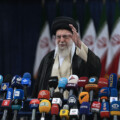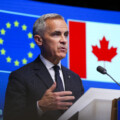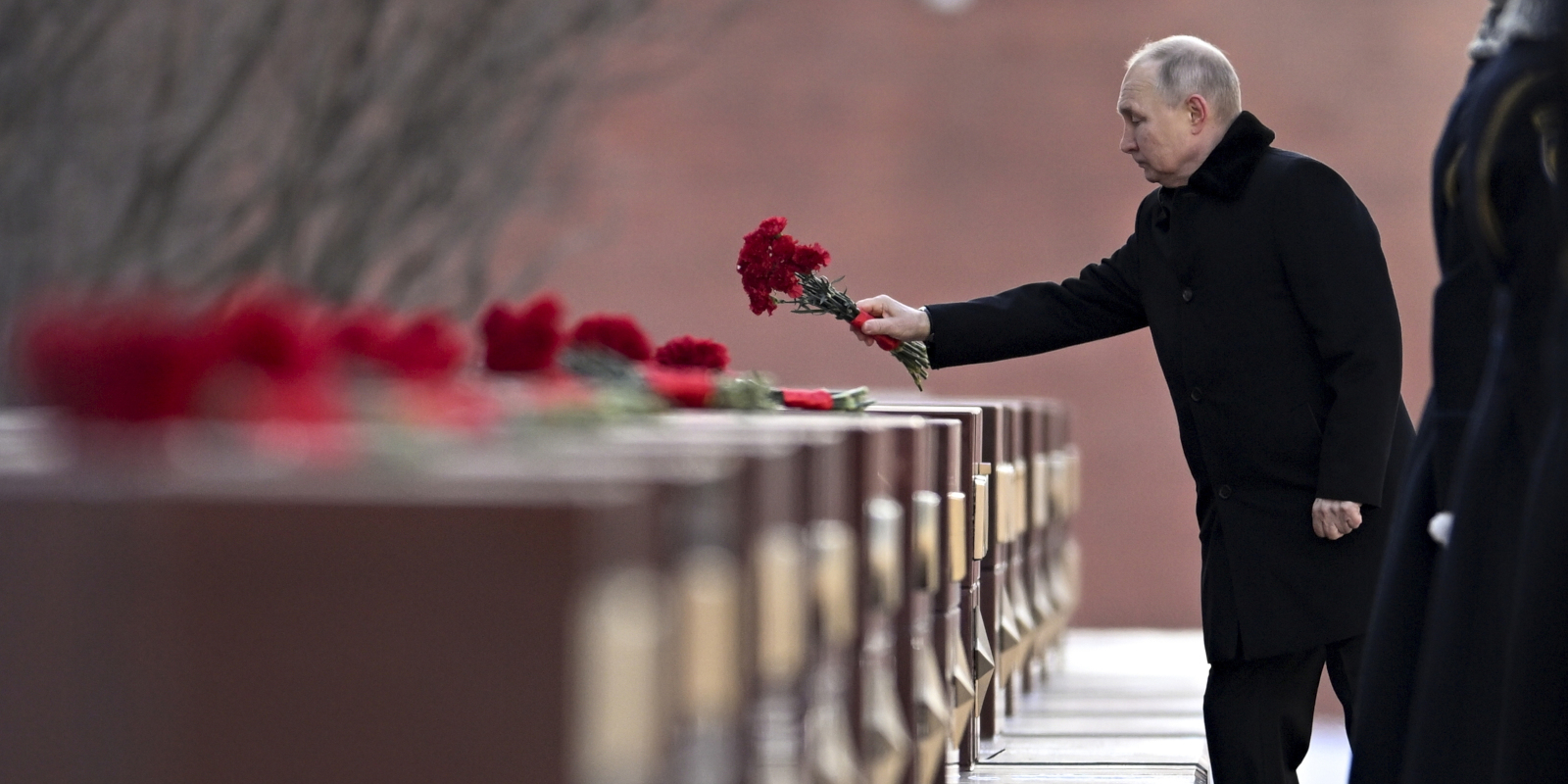Russian President Vladimir Putin badly miscalculated when he assumed the West wouldn’t show a united front on sanctions, but they’re still a tricky tool to use against authoritarian regimes, argued Agathe Demarais, a leading expert on economic sanctions.
“Sanctions are a bit like antibiotics…they are a critical tool,” said Demarais. “But if you use them too much, then you have ripple effects…I sometimes fear that these ripple effects are a bit neglected in the American debate.”
On Tuesday, Demarais discussed her new book, Backfire: How Sanctions Reshape the World Against U.S. Interests, with the Carnegie Endowment for International Peace, which she said is not against sanctions but promotes a fuller understanding of their consequences.
A surprising forecast recently from the International Monetary Fund shows the sanctions against Russia are less effective than even Russian government officials predicted. The IMF projects the Russian economy will grow by 0.3 percent, partly fuelled by a war economy and partly by increased exports to countries that are bucking the sanctions, such as India, an economic powerhouse.
Since its annexation of Crimea in 2014, the Russian Federation has faced various sanctions from the West, with historically punitive measures added since its full-scale invasion of Ukraine in February of last year.
Demarais said the U.S. has not always worked collaboratively with its allies on sanctions, and this trend likely resulted in Putin miscalculating.
“I would bet that Putin expected that both sides of the Atlantic would fail to collaborate on sanctions after he invaded Ukraine on February 24,” said Demarais. “I think he’s been very surprised at transatlantic unity. And to me, this is a very, very positive trend.”
Although they haven’t lived up to the darkest forecasts, the impact of the sanctions on the Russian economy has been extensive. In the past year, many foreign companies have pulled out of Russia, and the country has been expelled from international banking systems.
In 2019, two years before the invasion of Ukraine, the United States and Russia conducted trade in goods and services worth nearly $35 billion. In 2020, the value of trade in services alone between the EU and Russia was worth €29.4 billion, while trade in goods was worth €257.5 billion in 2021. Energy alone accounted for 62 percent of the EU’s imports from Russia.
The EU’s largest importers of Russian oil and gas have diversified their energy sources, and as a result, Russia’s share of external EU imports in various significant categories has declined. For example, imports of Russian coal have collapsed from 45 percent to 13 percent, while natural gas imports halved from 36 percent to 18 percent.
Nevertheless, Russia’s economy has not collapsed despite last year’s sanctions, though it did enter a punishing recession.
“We’ve seen that the Russian economy has recorded a recession last year, it will probably record a recession again this year,” said Demarais, who notes technological sanctions will hamper the Russian military. “I think we still need to be realistic. It won’t be a collapse of the Russian economy, it’s the ninth largest in the world, but it will be a slow asphyxiation. ”

Last August, Russia’s trade with China had skyrocketed by 31 percent and reached $190 billion in total value by 2023. Demarais warned about the rise of “de-dollarized” world trade, pointing out that Russian-Chinese trade is conducted with roubles and renminbi. In the past year, even ostensible U.S. allies like Saudi Arabia have been publicly open about trading with China in non-US currencies.
“If one has a clearer view of this, it will ensure that sanctions remain an effective tool in the long run because I would be very worried about living in a world whereby sanctions become completely ineffective,” said Demarais.
Demarais referred to U.S. sanctions imposed on Muammar Gaddafi’s former dictatorial regime in Libya as an example of unilateral sanctions failing to fully accomplish their intended results.
“The only thing that it did was that Libya reoriented its exports towards Europe,” said Demarais. “After the sanctions became multilateral, which is, in my view, the way to make sanctions more powerful…the arsenal of weapons of the regime of Gaddafi was dismantled.”
Demarais said sanctions can be effective in countries where the population has a say in the direction of the government, such as Iran, a regime heavily sanctioned by the United States, while noting that Iran is a theocracy with a dismal human rights record.
Within Iran’s limited democratic institutions, Demarais pointed out that it was able to elect reformist Hassan Rouhani as president in 2013, who pledged to get those sanctions lifted.
Recommended for You

Chris Spoke and Peter Copeland: Ontario is missing millions of homes. Here’s where the government is failling—and how it can actually make a meaningful difference

Michael Bonner: Are we witnessing the last gasp of Iran’s Islamic Republic?

Need to Know: Yahoo, Alberta! You’re doing something right

‘He’s a master of globalization in a re-nationalizing world’: Michael Ignatieff on the domestic and geopolitical challenges facing Prime Minister Carney




